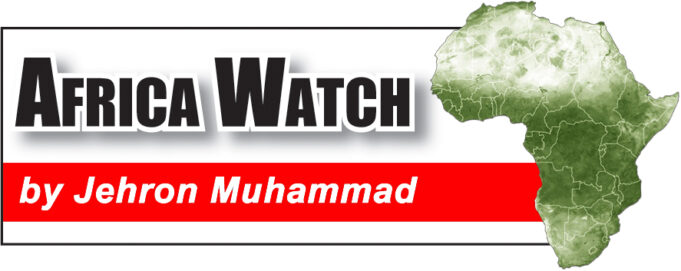Africa will be remembered in 2022 as the year of the “Sirens of apocalypse: UN climate report warns of worst to come.” Adding insult to this was the Ukraine-Russia war which has limited access to wheat, on a continent that in the past has said its arable land could feed the globe. Cold War revisited the continent, and U.S. challenges to China’s infrastructure development became a source of chagrin, and gained momentum as the U.S.-Africa summit, the first since 2014, became Washington’s year-end largest international gathering.
Not fulfilling its climate assistance and resources promise is how the Global North, including the U.S., is to be remembered as this year winds down. I posed a question to Greg Jenkins concerning what will happen at this year’s COP27 (27th United Nations Climate Change Conference) in Sharm El-Sheik, Egypt, and it indeed happened.
Jenkins is a professor in the Department of Meteorology and Atmospheric Sciences at Penn State University and also director of the Center for Education, Engineering and Design in Africa. He said it’s going to be “hot” in terms of the damages the Global South, including in Africa, and other developing nations will be weighing in on.
One of Africa’s principal concerns at this year’s summit was industrial nations like the U.S. reneging on paying their promised fair share in assisting Africa in mitigating damages Western countries cause that led to environmental problems on the continent.
Discussing water problems on the continent, including flooding, Jenkins said, “People can’t handle this. Cities can’t handle it. Farmers can’t handle it. And then there is these secondary impacts like cholera outbreaks or the creation of more malaria. So, it’s a rough problem and you know the countries don’t have the adaptation capacity at this point to deal now with this stuff.”
The fallout from Russia’s invasion of Ukraine also posed challenges. Kester Kenn Klomegah, policy consultant for eurasiareview.com, said, “with the economic consequences of the Russia-Ukraine crisis, it is another signal for African leaders to rethink about designing import substitution policies. Beyond all that, it seems Africans have no other way to reverse their addiction for food imports that take a significant part of their budgets, despite the huge arable land. Food deficits are occurring with the potential for causing famine, especially in the Sahel and Horn of Africa regions.”
However, according to Dar es Salaam-based economic analyst Gabriel Mwang’onda, this might be a blessing in disguise. “Why? Because in times such as this one is when you realize it’s very important to a nation to become self-sufficient, because here food is a security,” argued Mwang’onda, who appeared on CGTN Africa, the African division of the China Global Television Network, based in Tanzania.
December saw the U.S.-Africa Leaders Summit in Washington, D.C., the first gathering of its kind since 2014.
Stars and Stripes, the U.S. military’s news organization reported what Defense Secretary Lloyd Austin brings to the U.S-Africa Leaders Summit, according to what a senior defense official told reporters at the Pentagon. The event’s main purpose is to implement a new American strategy jointly with Sub-Saharan Africa that aims to add long-term stability and deepen relations—especially in places where Russia and China are making inroads.
“This strategy reframes the region’s importance to U.S. national security interests,” the White House states in its 17-page U.S. Strategy Toward Sub-Saharan Africa. “This strategy articulates a new vision for how and with whom we engage.”
According to the UK-based “The Guardian,” 49 leaders and heads of state were invited to the summit, and the guest list underlined the difficulty faced by President Joe Biden and his administration in balancing values with pressing demands of power politics.
U.S. strategy also utilized public relations where op-eds were written, and scholarly talking heads were utilized to delegitimize China’s success stories at infrastructure development in Africa.
“African governments owe three times more debt to Western banks, asset managers and oil traders than to China, and are charged double the interest,” according to just-released research by Debt Justice. Just 12 percent of African governments’ external debt is owed to Chinese lenders compared to 35 percent owed to Western private lenders, according to the calculations based on World Bank data.
Lastly, much hope and praise in 2022 were placed on Africa’s most successful World Cup performance ever. For the first time in history, all five African countries participating—Morocco, Tunisa, Cameroon, Ghana and Senegal—won a game.
And even though Morocco lost to France, one headline said it all, “France, the World Cup’s last standing ‘African’ team.” Twelve of the 23 French players were of African ancestry from nine different African countries. Follow @JehronMuhammad on Twitter













